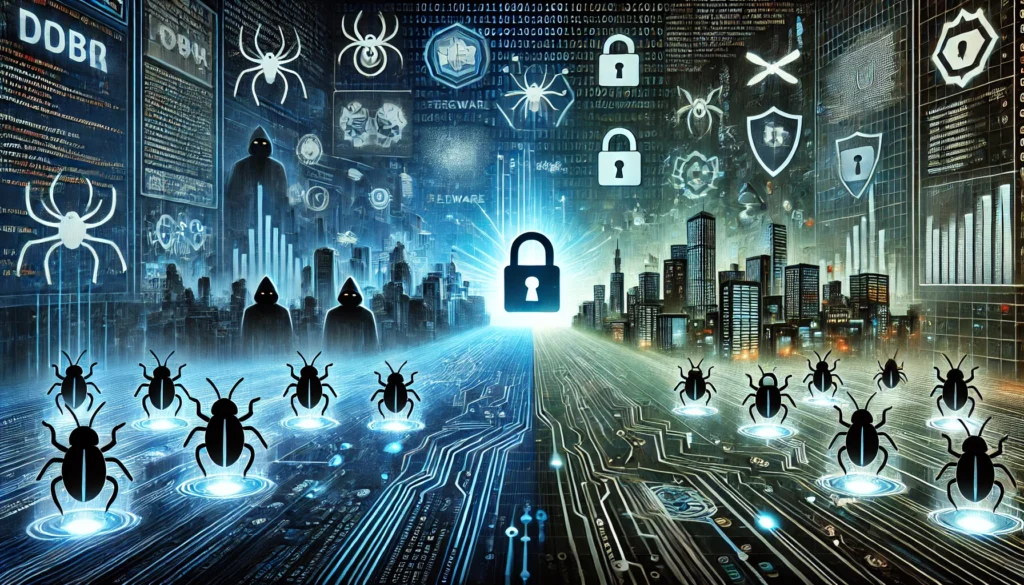Published On: August 28th 2025
Authored By: Rup Sarkar
Sister Nivedita University, New Town
ABSTRACT
The Indian Penal Code of 1860 was superseded by the Bharatiya Nyaya Sanhita 2023, which represents a significant advancement in Indian legal reform. Cybercrimes such as online fraud, identity theft, hacking, and data breaches are on the rise in the digital age. In addition to focusing on empowering digital policing, BNS introduces updated provisions to address such contemporary offences. The effectiveness of the BNS in combating cybercrimes, as well as its advantages, disadvantages, and future prospects, are examined in this article.
OBJECTIVE
The primary objectives are :
- To assess how well cybercrimes are handled by the BNS, 2023.
- To research the new laws that improve electronic evidence and digital policing.
- To determine the obstacles to the application and enforcement of cybercrime regulations.
- To make recommendations on how to improve the digital justice system.
ANALYSIS
- The definition of crimes in the modern age
Particular terms associated with contemporary crimes, such as organized cybercriminal networks, digital impersonation, and cyberfraud, are included in the BNS. The IPC had gaps and confusion in the past due to imprecise definitions. - Approval of Electronic Proof
As the use of digital tools increases, BNS supports the Bharatiya Sakshya Bill, 2023 (new Evidence Act), which makes it abundantly evident that electronic records, messages, and recordings can be used as evidence in court. - Technology’s Application in Law Enforcement
FIRs and summonses can now be recorded digitally by police and investigating officers. The purpose of body cams and the requirement that searches and seizures be videotaped is to decrease police misconduct and promote transparency.
KEY PROVISIONS
- Cybercrimes and other “organized” and “petty organized” crimes are defined and made illegal in Sections 111 and 112.
- Under the recently enacted Evidence Act, digital evidence, including chat logs, emails, and online transactions, is now legally recognized.
- Increasing accountability in investigations, videography is now required for FIRs, arrests, and seizures.
- The punishment for inciting violence or hatred through digital platforms is also included in Clause 150, which supersedes the sedition law.
- Charges must be framed within 60 days of the initial hearing, and trials must be finished within 45 days.
- provisions to expedite legal proceedings, such as the ability to file police complaints online and serve summonses digitally.
CASES
- Tehseen S. Poonawala v. Union of India:
This case established the standard for judicial expectations from new laws and highlighted the significance of accountability in investigations involving the public interest.
- Gwalior FIR under BNS:
In January 2024, the first case under BNS was filed, marking a new era in India’s criminal justice system and demonstrating the use of digital systems for the complaint and investigation.
CONCLUSION
An important step in bringing India’s legal system into line with the realities of the digital age is the Bharatiya Nyaya Sanhita, 2023. The legislation provides much-needed speed, digitization, and clarity in the fight against cybercrimes. But issues like inadequate forensic infrastructure, possible privacy violations, and a lack of cybercrime training still persist. The degree to which these implementation issues are resolved will determine the BNS’s actual effectiveness.
SUGGESTIONS
- Establish precise guidelines for the gathering, archiving, and validation of digital evidence.
- To safeguard individual rights, make sure there is judicial supervision in situations involving digital surveillance.
- Provide frequent instruction in digital forensics and cybercrime to law enforcement and judicial personnel.
- Increase public knowledge of cyber safety and available legal options.
- Create more cybercrime units with the newest equipment and knowledgeable staff.
- Update laws frequently to take into account emerging digital threats such as deepfakes, blockchain-based crimes, and AI-generated content.
REFERENCES
CyberPeace Foundation: Examining the framework for cybercrime and BNS
Ministry of Home Affairs: official text of the Bharatiya Nyaya Sanhita, 2023
Legal insights from Bar & Bench:
- Updates on BNS implementation
- Expert analysis on digital policing under BNS from Doon Law Mentor
- Case law developments in Live Law and Indian Kanoon
Reddit Law & Legal India: Discussions on new criminal laws between the general public and experts.



